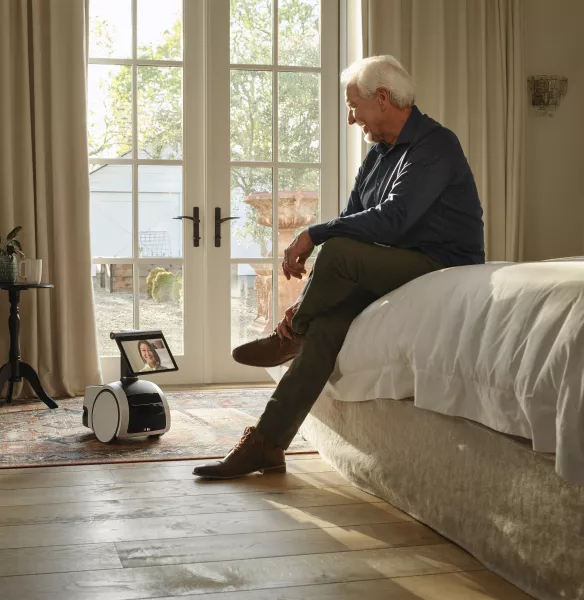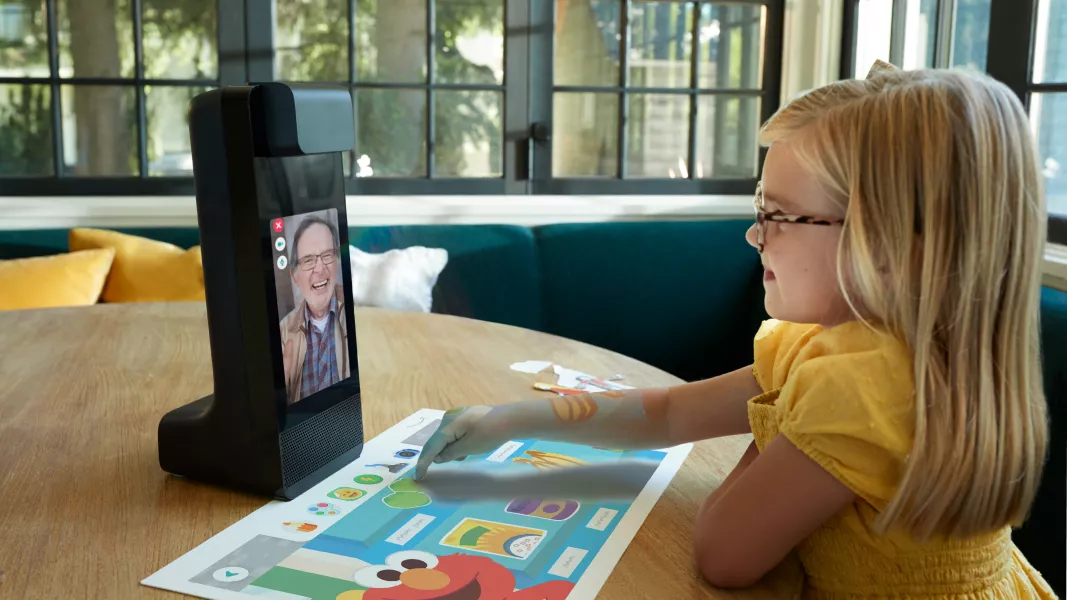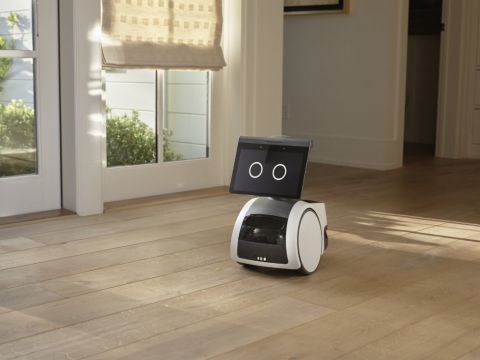Amazon has unveiled an autonomous home robot designed to guard the house as well as help with caregiving, as the firm announced a range of new smart home devices.
Called Astro, the device works with Amazon’s Alexa virtual assistant to respond to voice commands and can be linked with Ring home security products.
The technology giant will release the robot to select customers in the US later this year, costing $1,000 (€855).
Amazon’s senior vice president of devices and services, Dave Limp, said the firm’s latest gadgets were the “next big leaps forward” and showcased “science fiction becoming reality”.
Industry expert Ben Wood, the chief analyst at CCS Insight, said Astro was a “bold move”.

“Unlike rivals such as Apple, Amazon is willing to bring highly experimental products to market and assess consumer reaction. Amazon has shown it has the discipline to either evolve a product, as it did with the Echo, or abandon it, as it did with Fire Phone,” he said.
“The Astro robot follows other products including the Ring Always Home Camera — a mini-drone that acts as an indoor flying security camera — which are experimental and limited to the US market but take the company into new territory.
“Offering products resembling something from a science fiction novel positions Amazon as an innovative company in the eyes of consumers and investors. Furthermore, if it stumbles upon a successful category, it secures the first-mover advantage.
“There is also the added benefit that such a radical product will guarantee a slew of media coverage, albeit with the risk of a privacy backlash.
“Astro is a bold move by Amazon, but a logical step given its expertise in robots and desire to become more integrated into consumers’ daily lives. When viewed as an Echo Show on wheels and given its synergies with Amazon’s Ring products, you can see why the company feels it is a bet worth making.”
However, Mr Wood warned that the device would be a “lightning conductor” in the debate around privacy, adding that Astro could be “the litmus test for convenience versus privacy”.

Astro was announced as part of Amazon’s annual devices and service update, which also saw a new Echo Show 15 smart hub unveiled.
Designed to look like a family planner that can be mounted on a wall or stood up on a stand in landscape or portrait, the new Show includes Alexa Widgets for the first time — allowing users to fill the screen with virtual sticky notes, reminders and a family calendar.
The Show 15 was joined by a video calling device called Amazon Glow, which is designed to make video calls more engaging for children when they speak to grandparents or parents who are away from home.
As well as an eight-inch display, the Glow includes a projector that beams virtual games and activities onto a table top for children and family members to play or interact with together while on the call.

A new subscription service called Alexa Together was also announced, which uses the virtual assistant to help people care for older relatives using Echo devices, for example allowing families to monitor a relative’s activity and send urgent care alerts if prompted.
Amazon also announced updates to its Halo fitness band and added new workout and nutrition subscriptions to the platform, a new Alexa partnership with Disney, and a number of new Ring and Blink home security devices and services.
“This latest barrage of devices and services from Amazon sees the company doing what it does best — evolving existing products, entering new categories with new features, and continuing to disrupt through aggressive pricing,” Mr Wood said.
“All these products and services will help Amazon become even more pervasive in people’s daily lives.”







